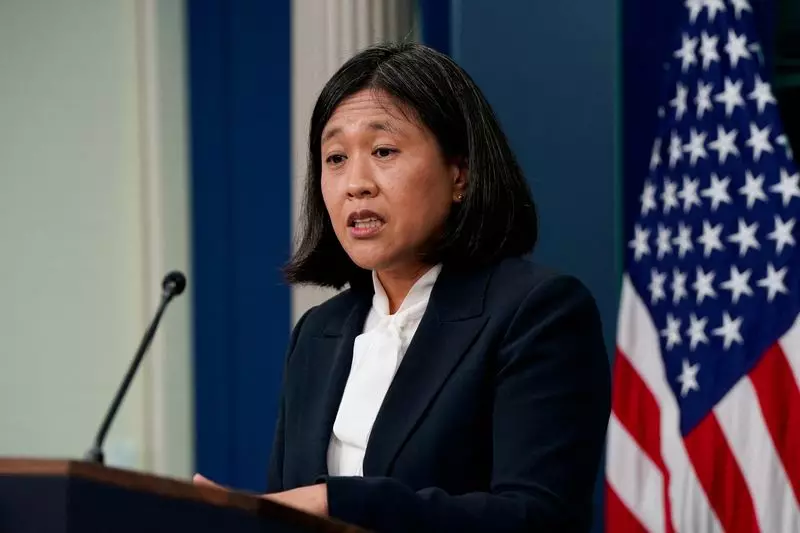In the realm of international trade, negotiations often stir public debate and political intrigue, especially during periods of political transition. Recent actions by U.S. Trade Representative Katherine Tai have sparked bipartisan concern within the Senate regarding the potential weakening of investor protections in ongoing trade agreements. This situation unfolds against the backdrop of a changing administration, raising questions about transparency and oversight in trade policy formulation.
A coalition of U.S. senators has voiced disapproval over what they describe as “secret negotiations” with neighboring countries, specifically Mexico, Canada, and Colombia. Prominent figures, including Senate Finance Committee Chairman Mike Crapo and the committee’s leading Democrat, Ron Wyden, have criticized these discussions as lacking transparency. They argue that such negotiations could significantly alter established investor protections in key agreements such as the United States-Mexico-Canada Agreement (USMCA), potentially undermining the long-standing interests of American businesses.
Despite the senators’ claims, a source familiar with the discussions refuted the characterization of these talks as clandestine. The Office of the U.S. Trade Representative (USTR) maintains that it has engaged with congressional members throughout this process, despite it not being legally mandated to do so. This raises a pivotal question: to what extent should executive branches consult legislative bodies when making changes to trade agreements? The absence of clear communication might lead to misunderstandings, fueling doubts about the administration’s commitment to accountability.
The discussions at hand could impact several vital trade frameworks that dictate how investment disputes are resolved. Notably, the potential renegotiation of provisions related to investor-state dispute settlement (ISDS) raises alarms. These provisions allow foreign investors to bypass domestic courts in favor of international arbitration, a mechanism that some critics argue empowers corporations to challenge government policies perceived as detrimental to their interests.
Colombia’s President Gustavo Petro has explicitly called for the elimination of ISDS provisions, citing concerns about the disproportionate power these agreements afford to corporations. This desire has resonated with a faction of Democratic lawmakers who believe in prioritizing domestic labor and governmental authority over corporate interests. On the flip side, an increasing number of bipartisan voices from Congress have raised objections, warning that diluting these protections will harm American firms and the economy at large.
The trade discussions illustrate a schism within both parties over the future of U.S. trade policy. While some Democrats advocate for more stringent regulations on corporate influence in order to protect middle-class jobs, others, including several Republicans, argue passionately in defense of maintaining robust investor protections. This divide highlights the complexity of trade policymaking, where economic realities clash with various political ideologies.
In a notable instance, 26 members of the House of Representatives, spanning both parties, expressed their trepidation regarding the potential unwinding of a specific USMCA provision. The provision in question allows the U.S. company Vulcan Materials to pursue legal claims against Mexico following actions perceived as detrimental to its business interests, including the alleged expropriation of quarrying operations crucial for U.S. infrastructure projects. The commentary from these lawmakers emphasizes a fundamental belief that robust investor protections serve as a vital guard for domestic companies against unpredictable foreign government actions.
As the Biden administration draws to a close, the urgency to finalize trade negotiations is palpable. However, the intersection of political expediency and the need for thorough deliberation remains a contentious issue. The senators’ insistence on more extensive congressional consultation underscores the principle that significant trade policies should not emerge from behind closed doors.
In an increasingly interconnected world, ensuring that trade agreements balance the rights of investors with the sovereign powers of governments is crucial. As debates continue and transitions unfold, the ultimate challenge remains: how to forge a trade policy that upholds the principles of transparency and inclusivity while effectively navigating complex international relations.

